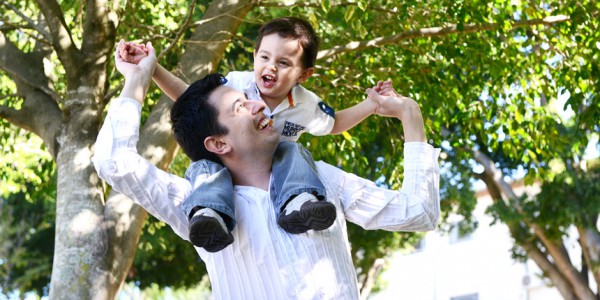What would be the best time in life for a child? And what phase would he like to live with his father?The paternal figure has an important representation in the formation of an individual. It has the function of mediating the child’s experiences with the world, giving him the opportunity to live with behavioral models that can serve as an example to interact with the environment in a respectful, fit, balanced and loving way. Therefore, the best phase of a child’s life to be lived with the father should be a lifetime, provided in a healthy way.

Initially, the father stands out as the companion of the mother. It is with his help that the baby will learn to differentiate himself from the mother, achieving the long-awaited psychic and psychological autonomy. Staying true to his function has become challenging for the paternal figure, since man does not become a father because he is going to have a child, this formation is linked to the conception in which he was created. In order to do so, it is necessary to have good models, not only in your own home, but also in the media that today occupy a good time of the routine of the children.
Television programs have presented a father model as a subject incapable of assuming this role in the educational relationship, of planning their time with adolescents and more, of facing, with wisdom and responsibility, the role of authority against the demands necessary to life in the family and, consequently, in society. In this role we include reprimand and discipline, dialogue and expression of feelings through communication and demonstration. The environment affects and inspires these programs that bring back to society the content received, in an even more elaborate way, rich in technological, creative and extremely stimulating effects. Examples are novels, journalistic programs with an emphasis on violence, cartoons that subtly pass messages opposed to Christian values that should be kept in the family environment.
Becoming present when one has a rhythm of life that leads the father to be absent requires skill on his part and the conviction of knowing that he wanted to be a father. One must not be seduced by outsourced alternatives to parenting. The father absence frustrates those who believe that all the phases could be better next to the father. Probably, this absence and the unbridled need of the mother-woman to be everywhere and to occupy all roles contributes to this chaos. Decreased paternal function affects the psychic and psychological structuring of the individual during his childhood and youth.
The father should continue to be the one who says and holds the ‘no’ for both the child and the mother herself when necessary. “It is he who introduces negativity into the life of an infant and declares the prohibition, the limit of the possible.” Understand negativity as an opportunity to teach your child not to lead his life solely through the desires of the media, idioms or his own needs. But, above all, by their real needs.
What about you, Dad? What is the best time to be with your child? All. Once father, forever you will be! Your words are health to your child’s body. May parents understand the importance of educating in stature, wisdom, and grace, just as it did in the life of Jesus.
Father, you have reached the stage of reorganizing your life for love. And, along with his son, sing like this: “For love, you were created for love! You are God’s masterpiece, you excel in beauty more than anything. Your creation was an explosion of immense love! “
It is with the chorus of this song that the writers Emmir Nogueira and Sílvia Lemos, in the book ‘Tecendo Fio de Ouro’, [Weaving Golden Wire] writes: “We were created by love, for love and in love. We came from love. We will find in love. Then we will order our lives in the order of love. “
Father, because of your love, your son wants to live the best phase of his life with you. And the best phase, with love, are all phases.
See too:
:: Father, your child needs to feel that you love him
:: Fatherhood, gift and grace of God
Links are translated from Portuguese by Google translate

